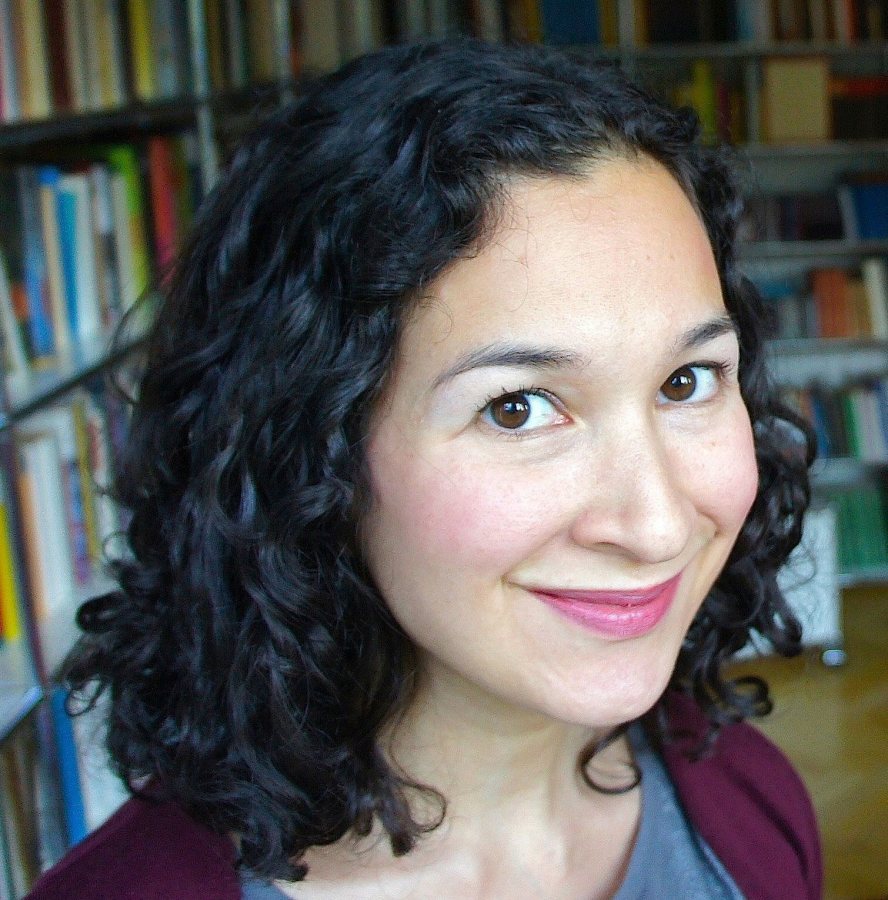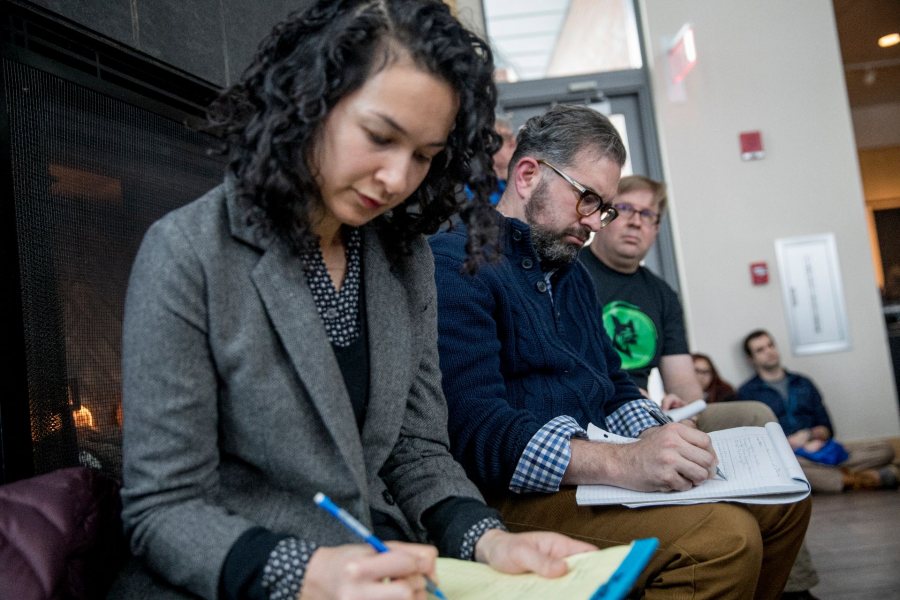
Transgender children are often unwaveringly sure about their gender identities. The adults around them rely on such expressed certainty to determine whether these children are “really” trans.
But if a trans kid isn’t so certain, does that make their identity any less authentic?
A paper examining notions of authenticity in trans children has won its author, a member of the Bates politics faculty, an annual award from the American Political Science Association.
 A lecturer in politics and a Mellon Diversity and Faculty Renewal Postdoctoral Fellow, Hagel was honored for her article “Alternative Authenticities: Thinking Transgender Without Essence,” which appeared in the journal Theory & Event in July 2017.
A lecturer in politics and a Mellon Diversity and Faculty Renewal Postdoctoral Fellow, Hagel was honored for her article “Alternative Authenticities: Thinking Transgender Without Essence,” which appeared in the journal Theory & Event in July 2017.
The paper received the APSA’s Susan Okin–Iris Young Award for Best Paper in Feminist Theory.
As Hagel explains in her article, two things often stand out when trans kids talk about their identities. For one, they frame gender in a very binary way — female or male. And they express strong certainty about their essential selves: “I know I’m a girl, I’ve always been a girl, and I know this because I like wearing dresses” or “I like the color pink.”
They show a force of conviction that the American Psychiatric Association, in its clinical definition of gender dysphoria, famously characterizes as “consistent, persistent, and insistent.” Because these are medically disseminated standards, adults are more likely to accept children’s gender identities when they seem stable and posed with firm conviction.
“Uncertainty about who one really is may be the most honest feeling one can have about oneself.”
While such acceptance certainly represents progress, it is also, as Hagel suggests, trading one set of constraints for a somewhat looser set, reinforcing a way of thinking based on the sharply binary view of gender and the value of firm convictions that are read as authentic.
“Having a greater understanding of transgender youth makes their lives much easier,” she says, “but there are unintended consequences and lingering questions that really motivated me to write the article.

Politics lecturer Nina Hagel’s paper examining notions of authenticity in trans children was honored by the American Political Science Association. (Photograph courtesy Nina Hagel)
“While I agree with a lot of the political aims, I wondered whether this discourse might have unanticipated costs — whether it might regulate not only other transgender kids, but also transgender adults, and even non-transgender adults who assume a slightly different relationship to their gender.”
So a key objective of the article is to propose a broader understanding of authenticity incorporating qualities that might, at first, seem antithetical to it, such as uncertainty, changeability, or plurality. As Hagel writes, “uncertainty about who one really is may be the most honest feeling one can have about oneself.”
“In gender discourse today, our terms are shifting, our understanding of gender is shifting,” she says. If your identity has evolved, “it doesn’t necessarily mean that your prior self was false, or that ideas of truth and falsity have to map onto ideas of certainty or fixity in gender.“
In short, “I offer a counter-discourse that gives children the space to explore who they are without having to pin it down really early, but also without having to dismiss those claims as being part of a ‘phase.’ But most importantly, I argue for not subjecting children to coerced gender presentations.”
“In our everyday life, and across a wide range of contexts, we make unconscious and automatic judgments about who and what is authentic.”
With degrees from Berkeley and Johns Hopkins, Hagel joined Bates in 2016. A whiteboard in her office is covered with chapter descriptions for a book project that will examine how claims to authenticity are used to motivate political projects. An interest central to Hagel’s research and teaching, this scrutiny of authenticity is rooted in her own story.

Nina Hagel (left) takes notes during a faculty panel in 2017 that offered analysis of the inauguration of President Donald Trump. At center and right are politics professors Stephen Engel and John Baughman. (Phyllis Graber Jensen/Bates College)
“As someone who is Filipina and multiracial, discourses of authenticity were part of what I grew up with,” she says. “People often wanted to know where I came from, who I really was. I realized that in our everyday life, and across a wide range of contexts, we make unconscious and automatic judgments about who and what is authentic.”
Transgender discourse is a context in which authenticity claims figure heavily. But that discourse significantly “departs from the suspicions toward authenticity that you get in, say, queer discourses or postmodern discourses in the 1980s and ’90s,” she says.
“We oftentimes are talking about different things when we talk about authenticity.”
“Gender here seems much more fixed and stable rather than open to instability and play.”
Meanwhile, in day-to-day conversation, “authenticity has a wide range of meanings,” Hagel says.
“It’s one of those densely coded concepts that has tremendous force in politics — even though we fundamentally disagree on what it is. So my book project started with a realization that we oftentimes are talking about different things when we talk about authenticity.
“It means original, true to yourself, but also ideas like ‘unique’ or ‘exemplary,’” she continues. “Almost always, when we hear ‘authentic,’ it’s a positive — you should be authentic, you should be true to yourself. But what that self is, and what being true to that self means, is really up for grabs.”
It’s always nice to win an award for your work. But it’s especially gratifying when the award itself represents someone who inspired that work.
“I’m thrilled to have won an award named after two of my favorite feminist philosophers,” she says. (The late Susan Moller Okin made a transformative argument for the centrality of gender issues in political philosophy. Iris Marion Young was a political theorist whose wide-ranging contributions touched on structural injustice, the politics of difference, and other concepts.)
“I teach works by both Okin and Young. They’re two of the first feminists I encountered in graduate school. Their work has opened so many doors for me — doors I didn’t even know were doors.”




